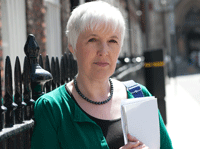
All children’s services should be subject to unannounced inspections according to Professor Eileen Munro’s interim report into the child protection system in England.
Published on 1 February 2011, Munro’s interim report recommends that Ofsted no longer evaluates serious case reviews (SCRs). The watchdog should also move from carrying out announced to unannounced inspections only.
Munro said too much time and effort was being spent by professionals preparing for inspections and meeting the bureaucratic requirements for Ofsted evaluations. This meant that, too often, SCRs had not offered enough analysis of why things had gone wrong or the lessons that could be learned.
Along with the unannounced inspections, local authorities would be subject to targeted “deep dive” inspections under Munro’s proposals. These inspections would be tailored to suit local circumstances and particular concerns, the report said.
Munro said she was also considering having a national system of trained reviewers of SCRs, who could share findings so that lessons were learned nationally. The review is also considering adopting the systems approach to SCRs used in the health sector.
In the next stage of the review Munro said she wanted to test out how to give frontline social workers greater autonomy so they can better exercise their professional judgment. Education secretary Michael Gove is considering using his powers to grant five local authorities temporary suspension of certain aspects of statutory guidance, subject to conditions.
Social workers in Cumbria, Knowsley, Westminster, Hackney and Gateshead would be able to complete certain assessments and hold child protection conferences within timescales that they think would best meet children’s needs. The trials would be rigorously monitored to ensure the safety and welfare of children, and to minimise delays.
The trial would last beyond the period of the Munro review, and evidence available at the end of the period would be considered by the government when responding to Professor Munro’s final report.
Munro said she was aware of the potential risk of a media circus if anything during these trials went wrong within the authorities’ child protection departments, but said that should not stop the work of a valuable experiment.
“There is a risk of that happening, even if whatever happens is totally unrelated to the trial,” she told Community Care after the report’s launch today. “But it’s that kind of critical attention that leads to the anxiety that led to the creation of all this bureaucracy social workers are struggling with. People need to know that no matter how effective a child protection sytem is, you can’t prevent all child deaths.
“If an incident does occur during the trials, we would try to present it clearly in those terms.”
Munro said the five councils were “self-selected”, having told her in her call for evidence that they wanted to take part in a trial of this kind. She said the idea had been prompted by the councils themselves.
A spokesman from the Department for Education said letters were going out to the five councils today, outlining the strict criteria that would surround the trials. The government must wait for the councils’ response before moving forward with the plan.
Other early recommendations in her interim report include:
● Giving universal services such as health, police and family support professionals easier access to social work advice when they have concerns about abuse and neglect.
● Revising and reducing the statutory guidance Working Together to Safeguard Children, which is now 55 times longer than it was in 1974, so that core rules are separated from professional advice.
Munro said: “Too often questions are asked whether rules and procedures have been met but not whether this has helped children. Everyone in the profession can think of meetings and forms that don’t actually make a child safer. While some regulation is needed, we need to reduce it to a small, manageable size. Placing a timescale on completing a form puts pressure on professionals which can distract from making decent quality judgements. We now have more knowledge about the kind of parenting that really harms children. Assessments should be skilled enough to distinguish between the families most in need and the parents who are struggling and just need a bit of help, possibly not from social workers.”
An Ofsted spokesperson said they welcomed the proposals on inspections and Ofsted’s role.
“While we believe that Ofsted’s work in the evaluation of serious case reviews has had a positive impact in improving their quality, we agree that these should now end and have been suggesting this ourselves for some time. Ofsted supports the review’s proposals for how SCRs are likely to be approached in the future to maximise learning and improve practice.”
More from the second interim report
Social workers should be working more closely with universal services
Munro says communication tools and skills need improving
Munro looks to health sector for SCR inspiration
Social work management role should be split
Report says ICS creates as many problems as it solves
What do you think? Join the debate on CareSpace
Keep up to date with the latest developments in social care. Sign up to our daily and weekly emails
Related articles
Munro review: social workers fail children due to focus on rules


 Family help: one local authority’s experience of the model
Family help: one local authority’s experience of the model  ‘I spent the first three months listening’: how supportive leadership can transform children’s services
‘I spent the first three months listening’: how supportive leadership can transform children’s services  How senior leaders in one authority maintain a culture of excellence
How senior leaders in one authority maintain a culture of excellence  How staff support ensures fantastic outcomes for children and families
How staff support ensures fantastic outcomes for children and families  Workforce Insights – showcasing a selection of the sector’s top recruiters
Workforce Insights – showcasing a selection of the sector’s top recruiters 

 Facebook
Facebook X
X LinkedIn
LinkedIn Instagram
Instagram
Comments are closed.